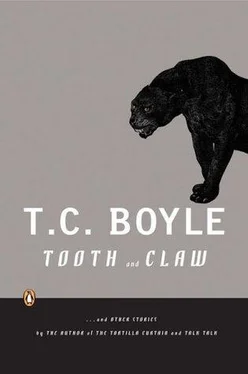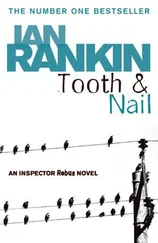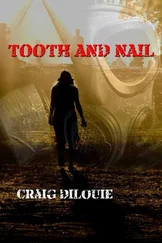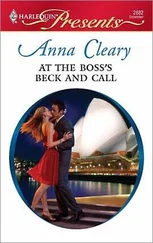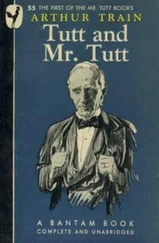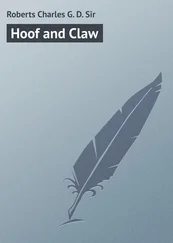She sat up with a start, even as he put his shoulder to the door and the breath of the storm rode in on a cold whip of wind-flung snow. “Where are we?” she murmured, as if they could have been anyplace else, and then, vaguely pushing at the hood of her parka as if to run her fingers through her hair, “Is it still snowing?”
They relieved themselves privately, he on his side of the car — after planing off the drift with the dull knife-edge of the door — and she on hers. He stood there, the snow in his face, whiteness unrelieved, and drilled a steaming cavity into the drift while she squatted out of sight and the road revealed itself as a featureless river flowing away between the cleft banks of the trees. It took them a while to divide up their things — anything left behind, extra clothes, toiletry articles, makeup, jewelry, would go into the trunk, where they’d recover it next spring as if they were digging up a time capsule — and they shared one of the two power bars she’d brought along in her purse and a stick each of the beef jerky he found in his backpack. They ate in the car, talking softly, warming their fingers in the blast of the heater, the gas gauge run nearly all the way down now, but he’d worry about that later. Much later. He brooded as he worked his jaws over a plug of dried meat, kicking himself all over again, but she was unfazed. In fact, given the circumstances, given how miserable he was, she seemed inordinately cheerful, as if this was a big adventure — but then it wasn’t her car, was it?
“Oh, come on, Zach,” she said, her eyes startled and wide behind the constricting lenses, a faint trace of chocolate defining her upper lip, “we’ll make the most of it. We were going to hike anyway, weren’t we? And when we get to the lodge we’ll see if maybe somebody can tow the car out — all right? And then we can play that game of pool you promised me.”
His voice dropped to a croak. He was feeling sorry for himself and the more upbeat she was the more sorry he felt. “They can’t,” he said. “It’s miles from the lodge and they don’t plow here, there’s no point in it. I mean, how would they get a tow truck in?”
The smile still clung to her lips, a patient smile, serene, beautiful. “Maybe you can get them to just plow one lane or something — or somebody with a snowplow on his pickup, something like that.”
He turned his head, stared at the frosted-over side window. “Forget it,” he said. “The car’s here till May. Unless the yahoos come out and strip it.”
“All right, then. Have it your way. But we’d better get walking or we’ll be here till May ourselves, right?”
He didn’t answer.
“It’s that way, I assume,” she said, pointing a gloved finger at the windshield.
He just looked at her, then shoved open the door and stepped out into the snow.
HE WAS TWENTY-EIGHT years old, in reasonably good shape — he worked out once or twice a week at the gym, made a point of walking the eight blocks to the grocery store every other day and went mountain biking in season — but the major part of his waking life was spent motionless in front of the computer screen, and that was what afflicted him now. The snow was thigh-deep, the air thin, and they hadn’t gone half a mile before his clothes were damp with sweat and his legs felt like dead things grafted on at the hip. She followed three steps behind in the narrow gauge of the trail he broke for her, her eyes sharp and attuned, the pink bag thrown over one shoulder, thrusting out her arms for balance every so often as if she were walking a tightrope. Nothing moved ahead of them, not a bird or squirrel even. The silence pinned them in, as if they were in an infinite bed under a blanket as big as the sky.
“You look like a snowman,” she said. “A walking snowman.”
He took this as a signal to stop, and he planted his feet and rotated to face her. She seemed reduced somehow, as small as a child sent out to play with her sled on a day when the superintendent had closed down the schools, and he wanted to hug her to him protectively, wanted to make amends for his mood and the mess he’d gotten them into, but he didn’t. The snow drove down, burying everything. There was a crown of it atop her hood, individual flakes caught like drift in her eyelashes and softening the frames of her glasses. “You too,” he said, pulling for air as if he were drowning. “Both of us,” he gasped. “Snowmen. Or snow man and snow woman.”
Later on — and maybe they’d gone another mile — he made a discovery that caused his heart to leap up and then almost simultaneously closed it down again. They’d come to a place he recognized even through the blowing snow and the shifting, subversive contours of the landscape — an intersection, with a half-buried stop sign. Straight ahead the road pushed deeper into the wilderness; to the left, it led to the Big Timber Lodge, and at least he knew where they were now, even if it wasn’t nearly as close as he’d imagined. He’d been fooling himself, he knew that, but all along he’d been hoping they’d passed here in the disorientation of the night. “I know this place,” he said. “The lodge is this way.”
She was panting now too, though not ten minutes ago she’d been telling him how she never missed a day on the Stairmaster — or almost never. “Fantastic,” she said. “See, it wasn’t so bad.” She stamped in place, shook the snow from her shoulders. “How far from here?”
His voice sank. “Pretty far,” he said.
“How far?”
He shrugged. Looked away from her even as a gust flung a fist of snow in his face. “Thirteen miles.”
THERE CAME A POINT — it might have been half an hour later, forty-five minutes, he couldn’t say — when he gave in and let her break trail ahead of him. He was wiped. He could barely lift his legs. And when he wasn’t moving — if he paused even for a minute to catch his breath — the wind dug into him and he felt the sweat go cold under his arms and across his back. He couldn’t believe how fast the snow was accumulating — it was up to his crotch now and even deeper in the drifts, the wind raking the trees till the needles whipped and sang, the temperature falling as if it were night already, though it was just past one. He watched her move ahead of him, head bobbing, arms churning, six steps and then a recuperative pause, her lower body sheared off at the waist as if she were wading across a river. She’d slipped a pair of jeans on over her leggings in the fastness of the car but she must have been cold, whether she’d grown up in the snow or not. He was thinking he’d have to catch her by the arm and reverse positions with her — he was the one who’d gotten her into this and he was going to lead her out of it — when suddenly she stopped and swung round on him, heaving for breath.
“Wow,” she said, “this is something, huh?” Her face was chapped, blazing, the cord of the hood gone hard with a knot of ice; her nose was running and her mouth was set.
“Let me,” he said, “it’s my turn.”
Her eyes gave him permission. Slowly, with the wind in his face and his feet shuffling like a drunk’s, he waded on ahead of her.
“I wish we had snowshoes,” she said at his back.
“Yeah, me too.”
“Or skis.”
“How about a snowmobile? Wouldn’t that be nice?”
“Hot coffee,” she said. “I’d settle for that.”
“With a shot of brandy — or Kahlúa. How does Kahlúa sound?”
The wind came up. She didn’t answer. After a while she asked him if he thought it was much farther and he halted and swung round on her. His fingers throbbed, his feet were dead. “I don’t know — it can’t be that much farther.”
“How far do you think we’ve come? I mean, from where the road forked?”
Читать дальше
